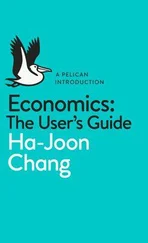Hood, Bruce - Supersense
Здесь есть возможность читать онлайн «Hood, Bruce - Supersense» весь текст электронной книги совершенно бесплатно (целиком полную версию без сокращений). В некоторых случаях можно слушать аудио, скачать через торрент в формате fb2 и присутствует краткое содержание. Год выпуска: 2009, Издательство: Constable Robinson, Жанр: Старинная литература, на английском языке. Описание произведения, (предисловие) а так же отзывы посетителей доступны на портале библиотеки ЛибКат.
- Название:Supersense
- Автор:
- Издательство:Constable Robinson
- Жанр:
- Год:2009
- ISBN:нет данных
- Рейтинг книги:3 / 5. Голосов: 1
-
Избранное:Добавить в избранное
- Отзывы:
-
Ваша оценка:
- 60
- 1
- 2
- 3
- 4
- 5
Supersense: краткое содержание, описание и аннотация
Предлагаем к чтению аннотацию, описание, краткое содержание или предисловие (зависит от того, что написал сам автор книги «Supersense»). Если вы не нашли необходимую информацию о книге — напишите в комментариях, мы постараемся отыскать её.
Supersense — читать онлайн бесплатно полную книгу (весь текст) целиком
Ниже представлен текст книги, разбитый по страницам. Система сохранения места последней прочитанной страницы, позволяет с удобством читать онлайн бесплатно книгу «Supersense», без необходимости каждый раз заново искать на чём Вы остановились. Поставьте закладку, и сможете в любой момент перейти на страницу, на которой закончили чтение.
Интервал:
Закладка:
In addition to organizing the world into patterns, mind design leads us to seek deeper, hidden causes operating in the world. Much of what controls the world is hidden from direct view, and so our minds have evolved to infer the existence of things we cannot see. We try hard to understand outcomes of events that have already happened and to which we were not privy. For example, imagine you arrive home to find a plate broken on the kitchen floor. How did this happen? you ask yourself. You start to reconstruct the order of events. The plate was on the table when you left that morning. Has someone else been in the house? Has there been an earthquake? Like a detective, you work backwards in time trying to reconstruct why something happened. This is how we interpret and understand a chain of events. However, such reasoning can also lead to mistakes. A human mind that links events in this way is always in danger of committing the mistake of post hoc, ergo propter hoc : ‘after this, therefore because of this’, which means that we tend to group events together in a causal way. We see the first event as having caused the second. There are two problems with this. First, we infer the actions of forces where there may be none, and second, we tend to link events that are not actually even related.
By linking events together, we see sequences in terms of cause and effect. For example, consider a very simple event involving objects colliding with each other. Imagine watching a game of billiards or pool. If we see a white ball strike a red ball, we see one event causing another. It’s the same for babies. If you show seven-month-old babies similar collision events, they interpret the first ball as causing the second to move, because if you reverse the sequence, they treat the reverse event as something different. 19Like adults, they see the red ball launching the white one. Nothing odd here you might think. In fact, you might say this is a very sensible way to interpret the world. However, the seventeenth-century Scottish philosopher David Hume tells us that such intuitions are an illusion because you cannot directly see cause. You cannot actually see the forces at work. You only see one event and then another event. This may seem far-fetched until you consider cartoon animations. When we observe a cartoon ball striking another, we infer the same causal force, but of course there is none. A cartoon is simply a set of drawings. Our mind interprets the sequence as if one ball were colliding with another. It is an illusion that helps us understand the world in terms of real forces because we often do not or cannot observe them at work.
So your mind design forces you to see patterns and to think something caused the patterns to form. You infer that what may be completely unrelated events are connected in some way. Things that happen after each other appear to be caused by forces that may not exist. This is all the more true when the outcome is not predictable, as in a game of chance. When something unexpected happens, you instinctively look for whatever caused it to happen. This type of thinking explains superstitious behaviour: repeating actions or engaging in certain behaviours in an effort to control outcomes. For example, if you have a particularly successful day on the tennis court or at the poker table, you may feel a strong compulsion to duplicate whatever actions you took that day in an effort to repeat the success. It may be wearing a particular piece of clothing or sitting in a favorite seat. Soon these behaviours may become essential routines and obsessions.
Athletes are notorious for their superstitious rituals. 20Rituals usually start off as innocent habits – something we all have – but because they become linked to important outcomes (like winning a game), they can take over an individual’s life. The tennis ace Jelena Dokic was probably the most complicated in her rituals, or at least the most honest and open about them. First, she avoided standing on the white lines on court. (John McEnroe did the same.) She preferred to sit to the left of the umpire. Before her first serve she bounced the ball five times, and before her second serve she bounced it twice. While waiting for serves, she would blow on her right hand. The ball boys and girls always had to pass the ball to her with an underarm throw. Dokic made sure she never read the drawsheet more than one round at a time. Finally – and bear this in mind sports memorabilia collectors – she always wore the same clothes throughout a tournament. Pheweee!
Jelena is not alone. Every year when I monitor exams I see a number of intelligent young adults engaging in routines (one had to walk around her table three times) or producing a multitude of lucky charms and ‘gonks’ (troll-shaped soft toys) that they believe will improve their performance. Even if you don’t believe in these rituals and charms, what’s the harm in trying? Well, none, unless they take over your life and prevent you from achieving your goals, as illustrated by Neil the Hippie from the 1980s’ UK comedy about student life, The Young Ones :
I sat in the big hall and put my packet of Polos on the desk. And my spare pencil and my support gonk. And my chewing gum and my extra pen. And my extra Polos and my lucky gonk. And my pencil sharpener shaped like a cream cracker. And three more gonks with a packet of Polos each. And lead for my retractable pencil. And my retractable pencil. And spare lead for my retractable pencil. And chewing gum and pencils and pens and more gonks, and the guy said, ‘Stop writing, please.’ 21
Superstitions are common in situations where the factors that control outcomes are unpredictable or the consequences of something going wrong could be fatal. However, rituals are also common among many high-achieving individuals in situations where attention to detail can lead to success. Harrison Ford, Woody Allen, Michelle Pfeiffer, and Winona Ryder are just a few celebrities who allegedly engage in ritualistic behaviour. In a recent TV interview, the soccer star David Beckham described some of his unusual rituals:
I have got this disorder where I have to have everything in a straight line or everything has to be in pairs. I’ll put my Pepsi cans in the fridge and if there’s one too many then I’ll put it in another cupboard somewhere. I’ll go into a hotel room and before I can relax I have to move all the leaflets and all the books and put them in a drawer. 22
Such behaviours reflect an obsessive attention to detail. It may be the case that those with a personality characterized by a need for discipline and control are more likely to achieve professional success in their striving for perfection. Such individuals can be found in all walks of life. We all know people who seem to pay excessive attention to detail and order. In about two out of every one hundred members of the general public, ritualistic behaviour that controls the individual’s life becomes the medical problem of obsessive–compulsive disorder. These sufferers have to engage in ritualistic behaviour and are incapable of breaking out of their routines. They are aware that their behaviours are odd, but that knowledge does not help. The irony is that, if prevented somehow from performing their rituals, they might not perform as well because of their increased anxiety that they are now luckless. These rituals give a sense of control in situations where control is important. So those with obsessive–compulsive disorder are not necessarily irrational, since this ‘illusion of control’ is psychologically comforting in comparison to no control at all. 23
However, the belief that rituals work is supernatural. We may deny that rituals are based on supernatural beliefs and claim that many of them, such as throwing salt over one’s shoulder when it is spilled on the table, are no more than harmless traditional customs of long-forgotten origin, much like the Christmas rituals discussed earlier. But if we think there is nothing to them, why do we see an increase in such behaviour at times of crisis? During the first Iraq war in 1991, Saddam Hussein fired SCUD missiles indiscriminately into Te l Aviv. What could be more stressful than sheltering during an air raid, not knowing if your family is about to be killed? In subsequent interviews, those living in the highest-risk areas were asked about their experiences, and it was observed that during the conversation they ‘knocked on wood’ significantly more than those from low-risk areas. It’s not clear where the practice of rapping on wood to ward off bad luck first came from. It may be linked to the pagan practice of tapping on trees to signal one’s presence to the wood spirits, or maybe it’s a reference to the Christian cross. Who knows? Whatever its origin, the threat of danger triggered a superstitious behaviour. 24We may deny the supersense, but it nevertheless lingers in the background of our minds, waiting for an opportunity to make a guest appearance at times of stress, when rationality can so easily abandon us.
Читать дальшеИнтервал:
Закладка:
Похожие книги на «Supersense»
Представляем Вашему вниманию похожие книги на «Supersense» списком для выбора. Мы отобрали схожую по названию и смыслу литературу в надежде предоставить читателям больше вариантов отыскать новые, интересные, ещё непрочитанные произведения.
Обсуждение, отзывы о книге «Supersense» и просто собственные мнения читателей. Оставьте ваши комментарии, напишите, что Вы думаете о произведении, его смысле или главных героях. Укажите что конкретно понравилось, а что нет, и почему Вы так считаете.












